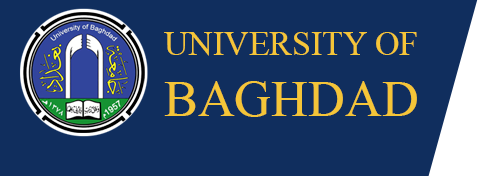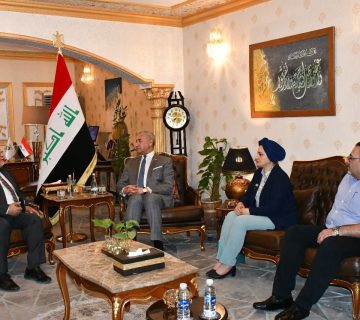Ibn Sina center at the university of Baghdad is preparing to launch its e-learning site in various specialties
Ibn Sina e-learning site that is related to computer center at the university of Baghdad completed its preparations to launch its website which is one of the important projects for the development of education in Iraqi universities and is currently applied in several countries including (Turkey, Jordan, Spain, England, Algeria) . The director of computer center, prof. Dr. Ghassan Majeed said “till now more than 300 electronic lectures in different specialties via a server for this purpose and will enable students to access to the site and that the college of engineering, al-Khwarizmi college of engineering, medicine and sciences for women as an empirical stage to publish audio and visual lectures which allows students at any time to access to the site”. The department of research and development at the ministry of higher education and scientific research announced the project of this center in collaboration with UNESCO as part of its efforts to develop the capacity of the Iraqi universities as there will be three centers at the universities of (Baghdad, Basra and Salah al-Din) as well as holding training and developing courses and workshops for professors inside Iraq according to international standards. The project was named after Ibn Sina (981-1037 AD) the most famous philosopher of his time in the field of mathematics and astronomy. The project is established by the European union and UNESCO in 14 countries (2002-2006) and its headquarters are distributed around the Mediterranean basin. The center established 14 centers for e-learning on internet, developing courses, a virtual library, a quality control system, training (1000) instructors, (140000) students via the internet and more than (1500) blind students. It was one of UNESCO’ major projects for the period (2008-2013) extended to Africa to train a large number of teachers and lecturers and building the virtual library of Ibn-Sina that includes educational materials.
Ibn Sina e-learning site that is related to computer center at the university of Baghdad completed its preparations to launch its website which is one of the important projects for the development of education in Iraqi universities and is currently applied in several countries including (Turkey, Jordan, Spain, England, Algeria) . The director of computer center, prof. Dr. Ghassan Majeed said “till now more than 300 electronic lectures in different specialties via a server for this purpose and will enable students to access to the site and that the college of engineering, al-Khwarizmi college of engineering, medicine and sciences for women as an empirical stage to publish audio and visual lectures which allows students at any time to access to the site”. The department of research and development at the ministry of higher education and scientific research announced the project of this center in collaboration with UNESCO as part of its efforts to develop the capacity of the Iraqi universities as there will be three centers at the universities of (Baghdad, Basra and Salah al-Din) as well as holding training and developing courses and workshops for professors inside Iraq according to international standards. The project was named after Ibn Sina (981-1037 AD) the most famous philosopher of his time in the field of mathematics and astronomy. The project is established by the European union and UNESCO in 14 countries (2002-2006) and its headquarters are distributed around the Mediterranean basin. The center established 14 centers for e-learning on internet, developing courses, a virtual library, a quality control system, training (1000) instructors, (140000) students via the internet and more than (1500) blind students. It was one of UNESCO’ major projects for the period (2008-2013) extended to Africa to train a large number of teachers and lecturers and building the virtual library of Ibn-Sina that includes educational materials.


